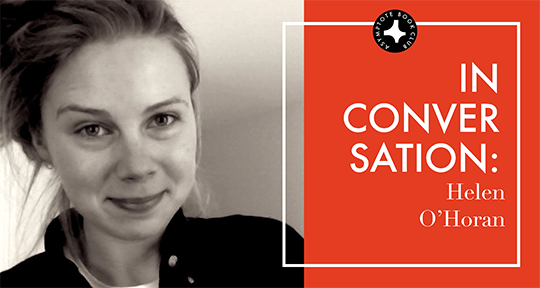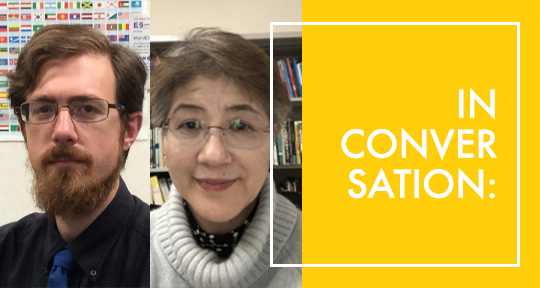In her first novel to be published in English, the counterculture icon Izumi Suzuki draws from her real-life experiences to craft a musical, vulnerable portrait of nonconformism during a tumultuous era in Japan. From passion to nihilism, dreaminess to self-destruction, Set My Heart on Fire is unafraid of contradiction in its approach to the self, inscribing mind and body in all of its varying desire and directions. As our final Book Club selection for November, Suzuki proves to be a particularly resonant writer for contemporary readers in her audacious pursuit of pleasure and mutability in identity, all told in a vivid voice conjured by translator Helen O’Horan. In this interview, O’Horan speaks to us about how Suzuki channels a sense of disconnection, her knack for performativity, and the centrism of human relationships in her literary work.
The Asymptote Book Club aspires to bring the best in translated fiction every month to readers around the world. You can sign up to receive next month’s selection on our website for as little as USD20 per book; once you’re a member, join our Facebook group for exclusive book club discussions and receive invitations to our members-only Zoom interviews with the author or the translator of each title.
Bella Creel (BC): How did you initially discover Izumi Suzuki’s work, and what drew you to her writing?
Helen O’Horan (HOH): I first worked on a short story for Suzuki’s collection, Terminal Boredom, just before the pandemic. I joined the project relatively late; by then, the reports had been written and the research done, so I want to credit the other translators and the publisher. That’s how I first learned about her work.
After that story, I really got into her writing—the timing was significant too. During the pandemic, I found myself feeling increasingly disconnected from my mind and body. My work as a translator wasn’t disrupted much since most of my clients are outside the United Kingdom, and it’s all online, but I started feeling like my mind and body were splitting apart.
That sense of disconnect reminded me of Suzuki’s writing—she often describes her body as something separate from her mind. Her work resonated with me at that moment, though of course, that’s just my interpretation. READ MORE…



